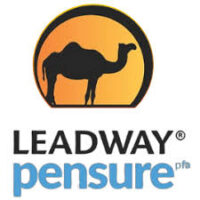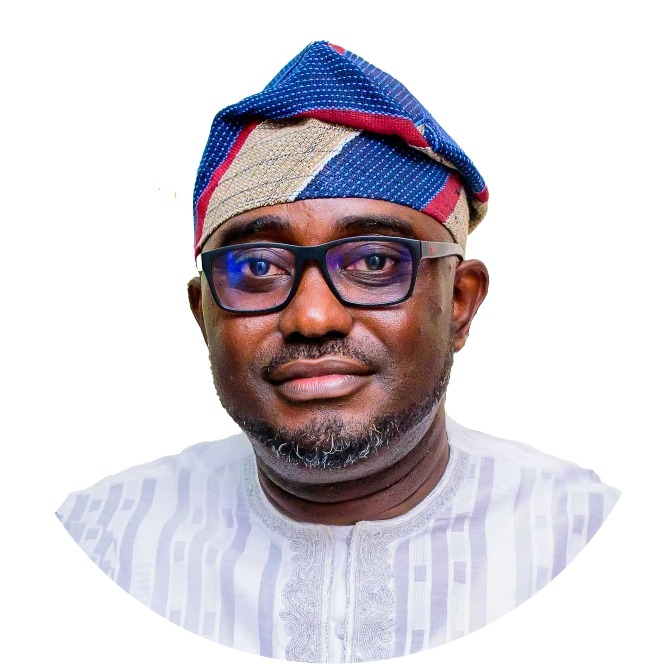- Home
- Business
- News
- Tourism / Travels
- Entertainment
- Regulators
- More
- Businesstoday Conference/Awards
- Business Today Magazine
Latest News
Please Subscribe
subribe to get the latest news delivered to you free
Leo XIV Elected As First American Pope
May 8, 2025Police Arrest Man For Stealing N20 million Hair From Moving Truck
Ebute-Ero division of the Nigerian Police in Lagos, have apprehended a suspected traffic robber and recovered stolen goods worth ₦20 million following a...
ByBusinessTodayNGMay 9, 2025Police Arrest Man For Stealing N20 million Hair From Moving Truck
Ebute-Ero division of the Nigerian Police in Lagos, have apprehended a suspected traffic robber and recovered stolen goods worth ₦20 million following a...
ByBusinessTodayNGMay 9, 2025Leo XIV Elected As First American Pope
The Conclave has elected Robert Francis Cardinal Prevost as the 267th Bishop of Rome. The new pope was announced to the waiting crowds...
ByBusinessTodayNGMay 8, 2025PenCom Calls For Implementation Of Pension Increases For Lagos Retirees
The National Pension Commission (PenCom) has urged the Lagos State Governor, Babajide Sanwo-Olu, to extend periodic pension increases currently enjoyed by Defined Benefit...
ByBusinessTodayNGMay 8, 2025Tinubu To Tackle Erosion, Reactive Gas Plan And Integrate State Into National Rail System
President Bola Tinubu on Thursday promised to address key developmental challenges confronting Anambra State and the Southeast region. These include erosion, underutilisation of...
May 8, 2025Tinubu Honoured With Chieftaincy Title “Dikesimba Of Anambra State”
President Bola Ahmed Tinubu’s visit to Awka, Anambra, today was not only about project commissioning. The state’s traditional rulers honoured him with the...
May 8, 2025Tinubu Congratulations His Holiness Leo XIV On Election As Bishop Of Rome
President Bola Tinubu offers his warmest congratulations to His Holiness Leo XIV on his election as the Bishop of Rome and the new...
May 8, 2025The Federal Government of Nigeria has approved the launch of the NIMC NIN Authentication for secure and seamless identity verification and authentication. Similarly,...
May 8, 2025Sanlam Celebrates Sales Champions At Annual Awards
Workers’ Day Celebration: Sovereign Trust Insurance Praises Nigerian Workers
IMT Applauds NIA For Strategic Fintech Collaboration To Improve Claims Payment
Unreleased Budgetary Allocations For MDAs Hinders Insurance For Federal Workers And Assets
Unitrust Insurance Sponsors 2025 Oyo State Int’l Trade Fair

Seplat Energy Committed To Leading Nigeria’s Indigenous Gas Revolution
Seplat Energy PLC, leading Nigerian independent energy Company listed on both the Nigerian Exchange and the London Stock Exchange, says it is committed to...
ByBusinessTodayNGMay 8, 2025NNPCL Dismisses Port Harcourt, Warri, Kaduna MDs, Others
The new management of the Nigerian National Petroleum Company Limited, NNPCL, has sacked closes allies of Mele Kyari, former Group CEO of the...
ByBusinessTodayNGMay 1, 2025ECOWAS And Ecobank Champion Alternative Energy Solutions
* Train Over 100 Entrepreneurs in Off-Grid Solar Sector in Abuja and Lagos The Economic Community of West African States (ECOWAS), in collaboration...
ByBusinessTodayNGApril 30, 2025Seplat Energy’s Revenue Rises To N1.228 Trillion In 2025 Q1, Declares US 4.6 Cents Dividend Per Share
Seplat Energy PLC, leading Nigerian independent energy Company listed on both the Nigerian Exchange and the London Stock Exchange, has announced its audited...
ByBusinessTodayNGApril 29, 2025Lagos Targets 6 Gigawatts In Three To Boost Power Supply
Lagos State has begun a journey to achieve energy independence with the target of 6 gigawatts in power generation over the next three...
ByBusinessTodayNGApril 16, 2025Seplat Name Fastest Growing Nigerian Independent Energy Company
Nigeria’s foremost energy sector publication, Energy Times Newspaper, has named Seplat Energy Plc as the Fastest Growing Nigerian Independent Energy Company for the 2024 business...
ByBusinessTodayNGApril 14, 2025
CSCS Unveils Innovative USSD Code Service Tagged *7270#
Central Securities Clearing System PLC (CSCS), has announced the launch of *7270#, its Unstructured Supplementary Service Data (USSD) code service, set to go...
ByBusinessTodayNGMay 6, 2025FCMB Group Lists 19.8bn Shares On NGX After Oversubscribed Public Offer
FCMB Group Plc has listed 19.8 billion shares on the Nigerian Exchange Group (NGX) after a public offer that was 33% oversubscribed, signalling...
ByBusinessTodayNGFebruary 4, 2025H2: Oando Announces 45% Growth In Revenue To N4.1Trillion
Oando PLC, Africa’s leading integrated energy company, has announced a strong financial performance for the Full Year (FY) 2024 with a 45% growth...
ByBusinessTodayNGFebruary 1, 2025NGX Group Hosts Katsina State Governor, Strengthens Collaboration On Capital Market Opportunities
Nigerian Exchange Group (NGX Group) hosted the Executive Governor of Katsina State, Dr. Dikko Umar Radda, CON, at the Exchange, marking a significant...
ByBusinessTodayNGJanuary 30, 2025EFCC, NGX RegCo To Strengthen Partnership On Market Integrity
NGX Regulation Limited (NGX RegCo), the independent regulation subsidiary of Nigerian Exchange Group, and the Economic and Financial Crimes Commission (EFCC) have called...
ByBusinessTodayNGJanuary 29, 2025SEC Cautions Nigerians Against Risevest, Stecs Cooperative Societies, Says They Are Not Registered
BY NKECHI NAECHE- ESEZOBOR–The Securities and Exchange Commission (SEC) has warned the public, against engaging in any investment-related transactions with Risevest (Victoria Island)...
ByBusinessTodayNGJanuary 27, 2025
Nigeria To Pay SDR Charges Of US$30 million Annually Despite Loan Repayment- IMF
NKECHI NAECHE- ESEZOBOR–The International Monetary Fund (IMF), has said that despite Nigeria has fully repaid the $3.4 billion financial support it received under...
ByBusinessTodayNGMay 8, 2025Afreximbank Launches $3 Billion Revolving Intra-African Oil Import Financing Programme
To address Africa’s persistent reliance on imported refined petroleum products, which accounted for an amount of US$30billion annually in petroleum import costs due...
ByBusinessTodayNGApril 28, 2025NDIC Begins Payment To Heritage Bank Depositors
The Nigeria Deposit Insurance Corporation, NDIC, has commenced payment of N46.6 billion in liquidation dividends to depositors of the defunct Heritage Bank. According...
ByBusinessTodayNGApril 28, 2025
Police Arrest Man For Stealing N20 million Hair From Moving Truck
Ebute-Ero division of the Nigerian Police in Lagos, have apprehended a suspected traffic robber and recovered stolen goods worth ₦20 million following a...
ByBusinessTodayNGMay 9, 2025Leo XIV Elected As First American Pope
The Conclave has elected Robert Francis Cardinal Prevost as the 267th Bishop of Rome. The new pope was announced to the waiting crowds...
ByBusinessTodayNGMay 8, 2025PenCom Calls For Implementation Of Pension Increases For Lagos Retirees
The National Pension Commission (PenCom) has urged the Lagos State Governor, Babajide Sanwo-Olu, to extend periodic pension increases currently enjoyed by Defined Benefit...
ByBusinessTodayNGMay 8, 2025Tinubu To Tackle Erosion, Reactive Gas Plan And Integrate State Into National Rail System
President Bola Tinubu on Thursday promised to address key developmental challenges confronting Anambra State and the Southeast region. These include erosion, underutilisation of...
ByBusinessTodayNGMay 8, 2025Tinubu Honoured With Chieftaincy Title “Dikesimba Of Anambra State”
President Bola Ahmed Tinubu’s visit to Awka, Anambra, today was not only about project commissioning. The state’s traditional rulers honoured him with the...
ByBusinessTodayNGMay 8, 2025Tinubu Congratulations His Holiness Leo XIV On Election As Bishop Of Rome
President Bola Tinubu offers his warmest congratulations to His Holiness Leo XIV on his election as the Bishop of Rome and the new...
ByBusinessTodayNGMay 8, 2025The Federal Government of Nigeria has approved the launch of the NIMC NIN Authentication for secure and seamless identity verification and authentication. Similarly,...
ByBusinessTodayNGMay 8, 2025Viral Video: Police Summon Officers Over Unprofessional Conduct
BY NKECHI NAECHE-ESEZOBOR—Following a viral video posted by an online blog recently, detailing the unprofessional conduct of certain police officers in Benin City,...
ByBusinessTodayNGMay 7, 2025










































